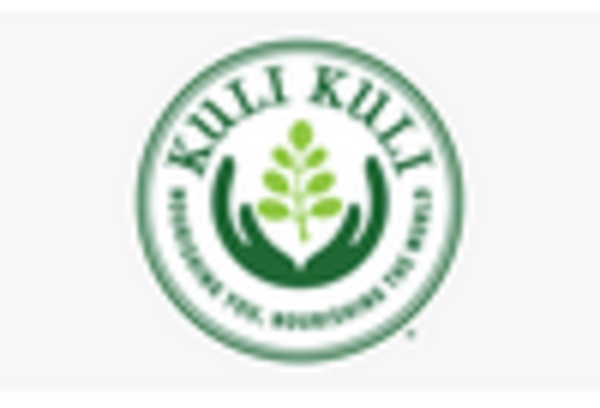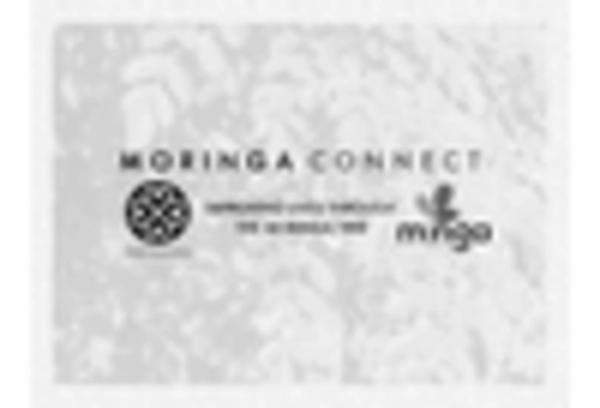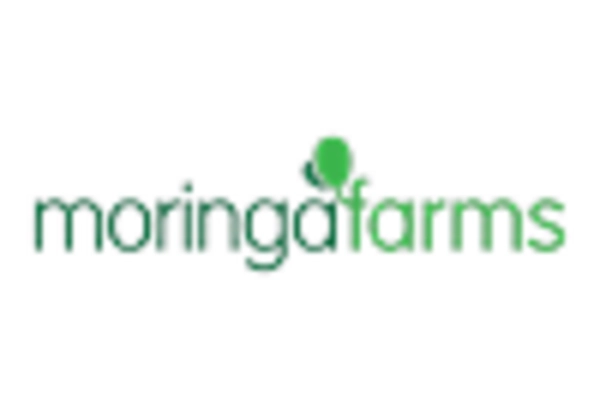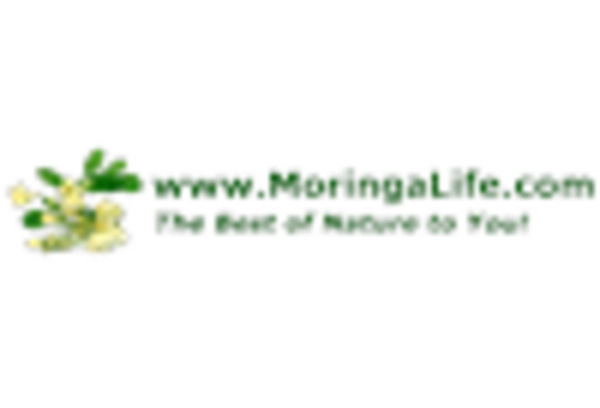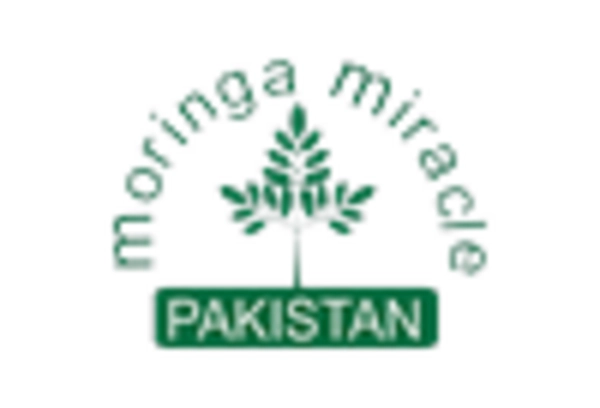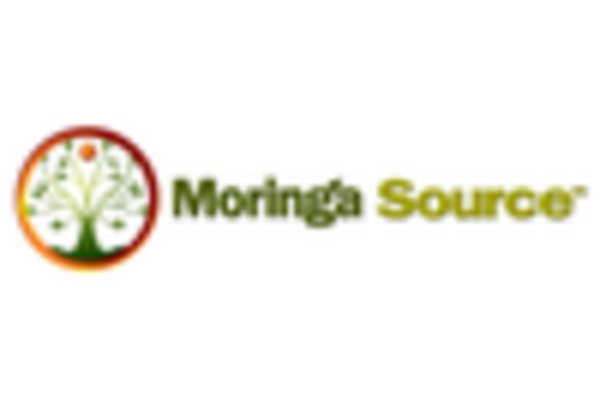Expansion of Retail Channels
The moringa products market is benefiting from the expansion of retail channels, which enhances accessibility for consumers. Traditional brick-and-mortar stores, health food shops, and online platforms are increasingly stocking moringa products, catering to diverse consumer preferences. In 2025, e-commerce sales in the health and wellness sector are projected to reach $100 billion in the US, indicating a shift in shopping habits. This trend is likely to facilitate greater exposure for moringa products, allowing consumers to easily discover and purchase them. The proliferation of retail options not only boosts sales but also educates consumers about the benefits of moringa, thereby fostering a more informed customer base.
Rising Popularity of Functional Foods
The moringa products market is poised for growth due to the rising popularity of functional foods, which are perceived to offer health benefits beyond basic nutrition. Moringa, often referred to as a superfood, is rich in essential nutrients and bioactive compounds that contribute to overall health. The functional food market in the US is expected to grow at a CAGR of 7% through 2025, with moringa products likely playing a significant role in this expansion. As consumers increasingly seek foods that support health and wellness, the demand for moringa-based products is expected to rise. This trend indicates a shift towards proactive health management, positioning moringa as a key player in the functional foods segment.
Growing Interest in Sustainable Sourcing
Sustainability is becoming a pivotal concern for consumers, influencing their purchasing decisions in the moringa products market. As awareness of environmental issues rises, consumers are increasingly favoring products that are sustainably sourced and produced. Moringa, often cultivated in eco-friendly conditions, aligns well with this trend. Reports indicate that 70% of consumers in the US are willing to pay a premium for sustainably sourced products. This inclination towards sustainability is likely to drive growth in the moringa products market, as brands that emphasize ethical sourcing and environmental responsibility may attract a loyal customer base. The integration of sustainability into marketing strategies could enhance brand reputation and consumer trust.
Influence of Social Media and Health Trends
The moringa products market is significantly influenced by social media and emerging health trends, which shape consumer perceptions and preferences. Platforms like Instagram and TikTok have become vital for promoting health-related products, including moringa. Influencers and health advocates often highlight the benefits of moringa, leading to increased consumer interest and trial. In 2025, it is estimated that 60% of consumers discover new health products through social media channels. This trend suggests that the moringa products market could see accelerated growth as brands leverage social media marketing strategies to reach a broader audience. The dynamic nature of online platforms allows for rapid dissemination of information, potentially enhancing the market's visibility and appeal.
Increasing Demand for Nutritional Supplements
The moringa products market is experiencing a notable surge in demand for nutritional supplements, driven by a growing awareness of health benefits associated with moringa. This plant is rich in vitamins, minerals, and antioxidants, making it a popular choice among health-conscious consumers. In the US, the nutritional supplement industry has seen a growth rate of approximately 8% annually, with moringa products contributing significantly to this trend. As consumers increasingly seek natural alternatives to synthetic supplements, the moringa products market is likely to expand further. The rising interest in holistic health and wellness is propelling the market forward, as more individuals incorporate moringa into their daily routines for its perceived health advantages.



